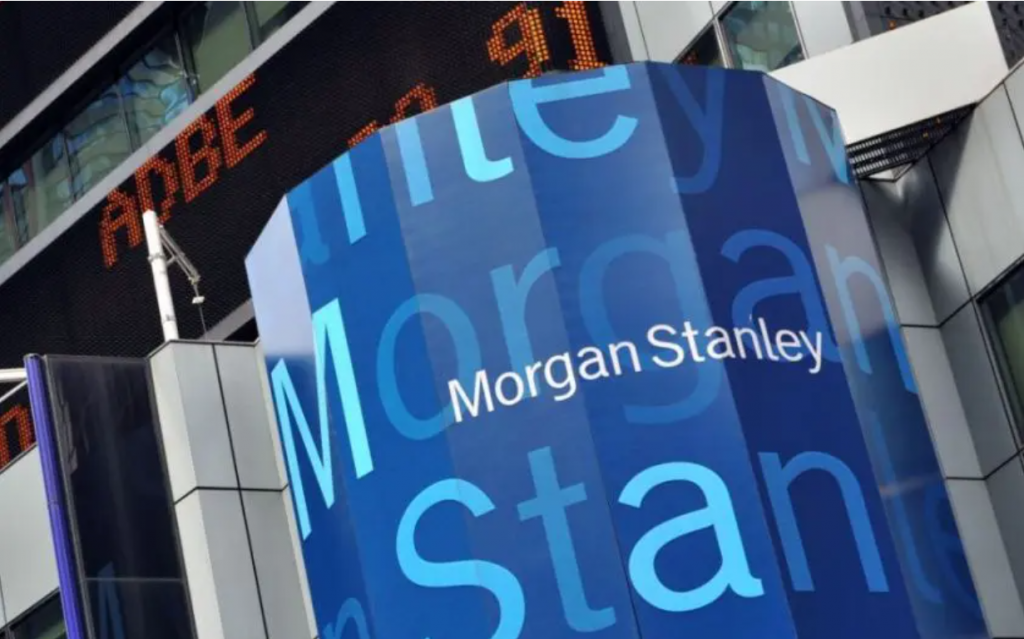
As a sea of red has swept over the market, with many once again predicting the death of Bitcoin and alts, Morgan Stanley has seized an opportunity to investment in blockchain and crypto for the very first time. It is the largest player on Wall Street that has yet to dip its toes into the space.
It is also noteworthy that Morgan Stanley owns 10.9% (792,627 shares) of Michael Saylor’s Microstrategy as of January. Morgan Stanley floated a $150 billion Bitcoin investment in February.
We covered in a recent article how Exodus Wallet is tokenizing its stock shares on the Algorand Blockchain and is using a company called Securitize to issue the shares. Morgan Stanley has announced they have co-led a $48 million “series B round for blockchain firm Securitize.”
Securitize has “pioneered a fully-digital, regulatory compliant, end-to-end platform for issuing digital asset securities, managing them and facilitating their trading to provide liquidity.”
Securitize operates somewhat like the traditional process of securitization, but with the modern twist of blockchain technology. The digital assets issued by Securitize can also be traded on secondary markets like the crypto market as Exodus wallet will be doing with their EXIT token.
The funding round was led by Morgan Stanley and Blockchain Capital. The deal included Pedro Teixeira, co-head of Morgan Stanley’s “tactical investing” joining Securitize’s board of directors.
Speaking of their first foray into the space, Teixeira stated: “We make long-term investments in businesses and asset classes that are ahead of the curve, “our investment in Securitize is a sign that we believe in the growth and adoption of digital asset securities.”
In securities markets, a transfer agent like Securitize “usually acts as the intermediary between an issuer of securities and shareholders of securities. They’re an agent of the issuer, but they serve multiple roles.”
Securitize is revolutionizing how crypto protocols or conventional companies raise money by facilitating the issuance of digital securities on the Algorand blockchain in a fully regulated way.
Some other prominent investors were Avalanche Labs, Sumitomo Mitsui Trust Bank, which is the world’s largest trust bank in Japan, and even Ripple. With this round, Securitize has a total of $87.5 million in funding to work with. Morgan Stanley is planning on creating a marketplace for digital assets with Securitize being a main player in that plan.
In the marketplace Morgan Stanley is creating around Securitize, a main goal will be to provide a “path to liquidity for the private capital markets.” According to Securitize, with this funding round they have become the “first blockchain company to receive major institutional funding from North America, Europe and the Asia-Pacific region.”
Securitize has been given the green light by the SEC, so it is no surprise that Morgan Stanley feels comfortable in dipping their toes into blockchain. This partnership highlights a recent trend of DeFi and CeFi forging a lovechild that is both regulated and backed by big firms, but still decentralized and embracing the ethos of the blockchain.
The tokenization of assets is going mainstream. Nadine Chakar from State Street, one of the largest money managers, said as much on Friday: “This technology is revolutionary and it will change the world.”
“Blockchain has been a solution looking for a problem for years now — but what you’re starting to see is it’s getting real. There’s real-use cases.” “You can tokenize a building — you can trade a fraction of it without selling a whole building,” stating that it creates “all new ways of unlocking liquidity.”
State Street is not the only one. BNY Mellon announced a new team in February stating that digital assets were “critical to transforming the future of custody.” It seems digital assets and some happy convergence between traditional finance and decentralized finance is the future as institutions are beginning to finally see the use cases. Blockchain used to be taboo, now firms don’t want to be left behind. As Chakar from State Street said on Friday to Bloomberg: “our concern was if we don’t get ahead of it when it takes off it may be really hard to catch up,”











